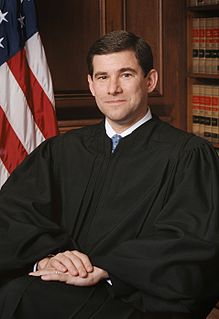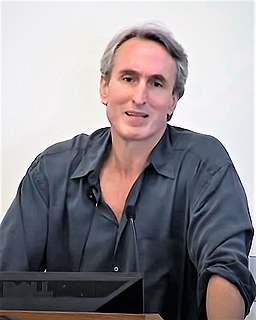A Quote by Linus Torvalds
Let's put it this way: if you need to ask a lawyer whether what you do is "right" or not, you are morally corrupt. Let's not go there. We don't base our morality on law.
Related Quotes
The mistake you make, don't you see,is in thinking one can live in a corrupt society without being corrupt oneself. After all, what do you achieve by refusing to make money? You're trying to behave as though one could stand right outside our economic system. But one can't. One's got to change the system, or one changes nothing. One can't put things right in a hole-and-corner way, if you take my meaning.
For no phase of life, whether public or private, whether in business or in the home, whether one is working on what concerns oneself alone or dealing with another, can be without its moral duty; on the discharge of such duties depends all that is morally right, and on their neglect all that is morally wrong in life.
I think basic disease care access and basic access to health care is a human right. If we need a constitutional amendment to put it in the Bill of Rights, then that's what we ought to do. Nobody with a conscience would leave the victim of a shark attack to bleed while we figure out whether or not they could pay for care. That tells us that at some level, health care access is a basic human right. Our system should be aligned so that our policies match our morality. Then within that system where everybody has access, we need to incentivize prevention, both for the patient and the provider.
There exists a law, not written down anywhere but inborn in our hearts; a law which comes to us not by training or custom or reading but by derivation and absorption and adoption from nature itself; a law which has come to us not from theory but from practice, not by instruction but by natural intuition. I refer to the law which lays it down that, if our lives are endangered by plots or violence or armed robbers or enemies, any and every method of protecting ourselves is morally right.
The House, being strong, should be generous ... but the constituents have a right to more than generosity.... The law gives me my seat. In the name of the law I ask for it. I regret that my personality overshadows the principles involved in this great struggle; but I would ask those who have touched my life, not knowing it, who have found for me vices which I do not remember in the memory of my life, I would ask them whether all can afford to cast the first stone ... then that, as best judges, they will vacate their own seats, having deprived my constituents of their right here to mine.
We're always projecting our moral categories on things. I think that's inevitable. But capitalism places no particular value on morality. Morality in the market is enforced by contract and regulation and law, because morality is understood to be in conflict with the motive force of greed and accumulation.
What sets science and the law apart from religion is that nothing is expected to be taken on faith. We're encouraged to ask whether the evidence actually supports what we're being told - or what we grew up believing - and we're allowed to ask whether we're hearing all the evidence or just some small prejudicial part of it. If our beliefs aren't supported by the evidence, then we're encouraged to alter our beliefs.


































